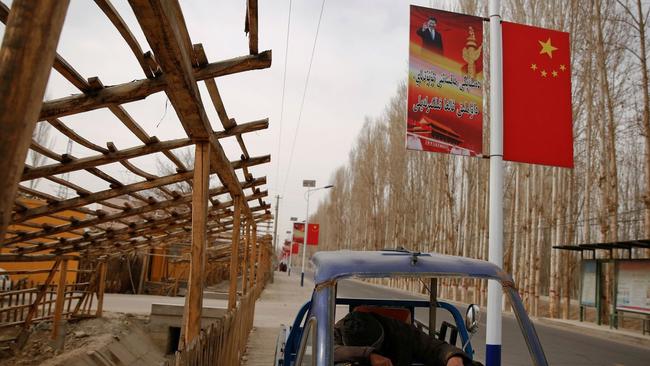Beijing rejects accusation on Uighur treatment
China has defended its tough measures to crack down on Muslim Uighur separatists as necessary to preserve ‘social stability’.

China has defended its tough measures to crack down on Muslim Uighur separatists as necessary to preserve “social stability” in northwestern Xinjiang Autonomous Region.
The New York-based Human Rights Watch this week alleged that China was conducting a “massive crackdown” and a systematic campaign of human rights violations against the Turkic Muslims in Xinjiang.
HRW says China is believed to be holding as many as a million Uighurs in a secret system of internment camps where they are subject to political indoctrination.
It says members of the Muslim minority faced arbitrary detention, daily restrictions on their religious practices and “forced political indoctrination”.
“The series of measures implemented in Xinjiang are meant to improve stability, development, solidarity and people’s livelihood,” Chinese Foreign Ministry spokesman Geng Shuang said in response to the claims.
He said the measures were also needed to “crack down on ethnic separatist activities and violent and terrorist crimes, safeguard national security and protect people’s lives and property”.
The largely Muslim Uighurs still dominate Xinjiang’s population of more than 22 million people with 46 per cent of the population, compared with 41 per cent Han Chinese.
One of the most ethnically diverse in China, the province is home to more than 40 different groups with the Kazakhs and the Hui the next largest minorities.
Mr Geng said maintaining “enduring social stability” in the province was “a wish shared by people of all ethnic groups in Xinjiang”. He said HRW had a “habit of treating China with prejudice, distorting facts and stirring up troubles”.
HRW alleges Xinjiang’s 13 million Muslim population is being subject to “forced political indoctrination, collective punishment, restrictions on movement and communications, heightened religious restrictions and mass surveillance”. “The Chinese government is committing human rights abuses in Xinjiang on a scale unseen in the country in decades,” says Sophie Richardson, HRW China director, in the report. “The campaign of repression in Xinjiang is a key test of whether the United Nations and concerned governments will sanction an increasingly powerful China to end this abuse.”
HRW alleges the crackdown began in 2014 and that the level of repression increased dramatically after Communist Party secretary Chen Quanguo relocated from the Tibet Autonomous Region to assume leadership of Xinjiang in late 2016.
“Since then, the authorities have stepped up mass arbitrary detention, including pre-trial detention centres, prisons and political education camps,” it says.
It alleges that there are credible estimates of as many as a million people being held in detention camps where Turkic Muslims are being forced to learn Mandarin, sing praises of the Chinese Communist Party and memorise rules applicable to Turkic Muslims.
Mr Geng said he did not want to make any specific response to the accusations by Human Rights Watch or its comments.
He said the Chinese government protected people’s rights to religious freedom under the law.
“People of all ethnic groups fully enjoy such rights in accordance with the law,” he said.



